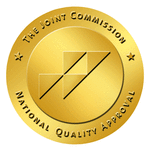Forgiving Others
The deeper the wound and the more complex the emotions, the harder it will be to forgive. But no matter how difficult the process, it is one that has power to bring closure to or restore a relationship. Regularly practicing forgiveness can also result in healing for your mind, body and soul.
It can be a challenge to forgive someone who has hurt you. As a young child my mother abandoned me and left me to be brought up by an abusive father. Their actions were significant in my long-term struggle with depression and alcoholism. I blamed them completely for my lack of self-esteem and self-destructive behavior as an adult.
However, as long as I blamed others, I absolved myself of any responsibility for my emotional and physical well-being. Clearly I needed to learn how to change my thinking in order to let go of the past and move on with my life. And essential to overcoming both my psychological disorders and my addiction was forgiveness.
Very often, that which you need to forgive is an event over which you had no control. Or it was a remark that was profoundly hurtful. Whatever the offense, there is nothing you can do to change it. How you react to it, however, is up to you. You can continue to carry the pain of the past through bitterness, intolerance and mistrust. Or you can choose to forgive and start to live free from the negativity that affects not just you but those around you.
Forgiving Yourself
When it comes to forgiving yourself, you need to make similar choices. You can decide to allow the shame of your past to overshadow your future and you can continue to condemn yourself for your imperfection. Alternatively, you can determine to accept what happened, challenge your need for perfection, and give yourself permission to make mistakes and learn from them.
This is particularly important in managing conditions such as depression or when recovering from addiction because unresolved shame, guilt and regret can be significant contributors to destructive patterns. Learning to forgive yourself is a key step to being able to let go of who you used to be and opening the door to who you want to be.
Making the Decision to Forgive
Whether it’s forgiving yourself or another here are five points to consider:
- Before you ask how, ask why. Why do you want to forgive? Is it to find closure in a situation long since passed, or is it to restore a relationship? Allow your motivation to guide you and find support to help you achieve your aims.
- Remember that forgiveness does not mean forgetting, condoning or excusing actions or words. Neither is it a form of surrender. Rather it is a stepping stone to acceptance of the past, which in itself is the foundation to forgive.
- The longer you allow your mind to be controlled by bitterness, rage and heartbreak, the greater the chance that you will self-medicate with substances such as drugs, alcohol or food.
- If replaying an event over and over in your mind is leaving you mentally exhausted or depressed then you need to determine that the past has keep you hostage for long enough and it is time to break free. Learning to forgive will help you take control of a situation over which you previously had none.
- Forgiveness starts with saying it. A genuinely meant, “I forgive you,” can help to renew a relationship. Still, actions speak louder than words. Showing remorse, making amends and not repeating the words or behavior are crucial to building trust.
- If self-forgiveness is an issue, remember that if you are living under condemnation you are setting yourself up for failure, disappointment and relapse. By contrast, if you choose to recognize your past mistakes and accept your imperfections as part of your uniqueness, you will be able to let go and move forward.
- Forgiveness isn’t transient; it’s a proactive plan that continues over time. Memories may remain unchanged, but a choice to release yourself from the past empowers you to live your life as the person you were meant to be.
By-- Carolyn Hughes




 RSS Feed
RSS Feed
